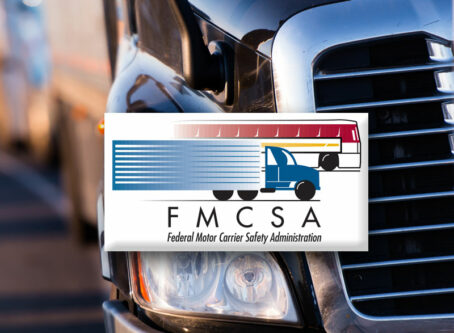OOIDA, ATRI release findings from COVID-19 trucking survey
A joint survey by the OOIDA Foundation and American Transportation Research Institute provided the trucking industry with some hard numbers regarding how motor carriers have been affected by the COVID-19 pandemic.
The results of the survey, which included about 5,100 respondents, were released on Tuesday, May 5.
Key findings
- Long-haul trips are down considerably as container imports at ports dried up. At the same time, local trips under 100 miles increased by more than 100%.
- While certain segments of the industry, such as medical devices, perishable foods and paper products, saw solid COVID-19-related increases in truck traffic, nearly 50% of respondents described freight levels as “somewhat” to “much” lower because of the pandemic.
- Nearly 70% of specialized and tank truck operations were negatively affected. In nearly every instance, smaller fleets reported greater negative effects than larger fleets.
- More than 40% of respondents said that truck parking was not any worse because of the pandemic. However, the larger fleets described truck parking as more difficult to find during the crisis.
- The research showed that driver detention generally did not change. Owner-operators and small fleets experienced much worse detention delays compared to larger fleets.
- In terms of disaster planning, 80% of owner-operators and small fleets do not have any plan in place for managing operations during natural disasters.
- The trucking industry generally has a favorable attitude toward state and federal responses, policies and programs set up to address the pandemic, with the federal response viewed as more favorable than the state responses.
- The trucking industry’s perceptions about the country’s economic situation over the next several months leans slightly pessimistic, both in terms of freight movement and consumer spending.
“This research puts solid numbers to what we otherwise only suspected,” said Andrew King, a research analyst for the OOIDA Foundation. “While we may be turning the corner on the COVID-19 pandemic, we’re not out of the economic woods yet.”
The survey
Out of the 5,073 people who responded to the survey, 77.1% were truck drivers. Among those drivers, 66.9% were between the ages of 45-64, and 81.4% had at least 11 years of experience driving a truck.
The OOIDA Foundation and ATRI said the sample of experienced drivers suggested that their responses would be accurate and insightful.
Nearly 60% of the respondents had a fleet size of 15 or fewer trucks. About 8% of the respondents were associated with a mega fleet of 1,000 trucks or more.
Trip lengths decrease
Before the pandemic, about 8% of the respondents said they hauled locally (100 miles or less). That number more than doubled to 18.2% during the outbreak. Meanwhile, the respondents who were participating in long haul (1,000 miles or more) dropped from 32.7% to 22.7%.
“While the underlying cause cannot be clearly discerned from the survey data, anecdotal evidence is that long-haul movements of international containers decreased at the same time that fleet operations recalibrated to moving essential consumer goods from local and regional warehouses to retail establishments,” the report stated.
According to the survey, small-business truckers saw the most drastic decrease in the length of trips. For fleets of fewer than five trucks, 40% of respondents reported decreases in average trip length, with nearly 25% of respondents reporting that their average trip length was “much lower.”
What’s next?
Most of the respondents said they believe that freight volumes will either stay the same or get worse over the next two months.
About 41% said they expect volumes to stay the same, and 45% said they predict volumes will become “much worse” or “somewhat worse.” Only 14% said they believed freight volumes would improve over the next two months.
“More than 35% of respondents believe COVID-19 impacts will be temporary in terms of industry operations,” the report stated. “Only 18% indicated that they were considering permanent business model changes.”
For a copy of the full report, click here.
Listen to OOIDA’s Andrew King and Tom Crowley discuss the report with Land Line Now’s Mark Reddig.









